You will rarely hear me complain about DeWALT. They manufacture outstanding products that are durable and reliable. My only complaint lately has been that they do not offer the variety of tools that some of their competitors do. So I was happy to see this DeWALT Cordless Compressor DCC2520 hit the market. I have reviewed several compressors over the years, and I have a Milwaukee cordless compressor. Let’s see if this DeWALT compressor will make me want to switch over.
DeWALT Cordless Compressor Overview
DeWALT’s previous cordless air compressors were part of their 20V tool line-up. This new, compact 2.5-gallon compressor can be used with any DeWALT 20V battery, but when powered by a DeWALT 20V/60V FlexVolt Advantage battery you’ll get maximum performance (81% more nails per cycle according to DeWALT). You’ll have enough cordless power to adequately run most of your pneumatic tools. This cordless compressor could be a productivity booster or at least a very convenient option for trim installers and finish carpenters.
DeWALT Cordless Compressor Features
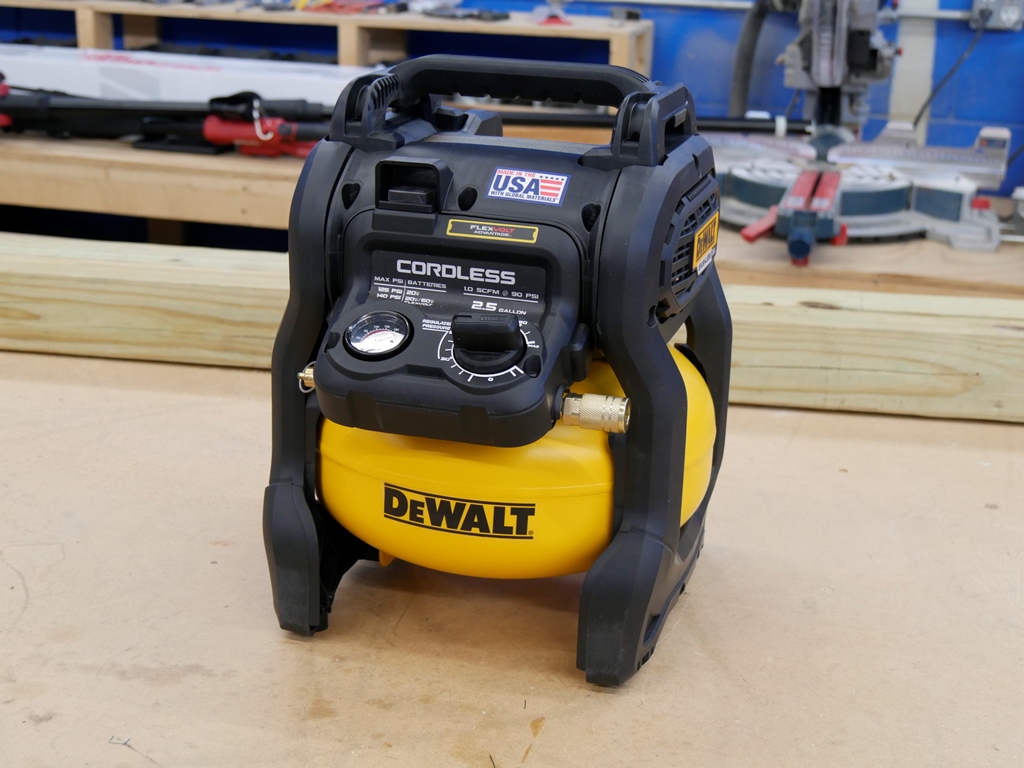
The overall design offers great portability because first and foremost it’s cordless. I like that it is lightweight enough (21.5 lbs.) to easily move it around as needed. It is also pretty compact at 15.5H x 14L x 12.5D. But even with its compact size, the brushless .4 hp motor with its oil-free pump can deliver up to 140 psi with a 20V/60V FlexVolt battery. And while it is not the quietest compressor I’ve ever used, it is rated at 79 dBA, which isn’t bad.
The DeWALT 60V FlexVolt 2.5 gallon air compressor (DCC2560) is similar to this model but will only run with their 60V FlexVolt battery. As I mentioned above, this DeWALT Cordless Compressor (DCC2520) has more flexibility. It can run off of their standard 20V Li-Ion battery. But for peak performance, you’ll want to use a DeWALT 20V/60V FlexVolt battery.
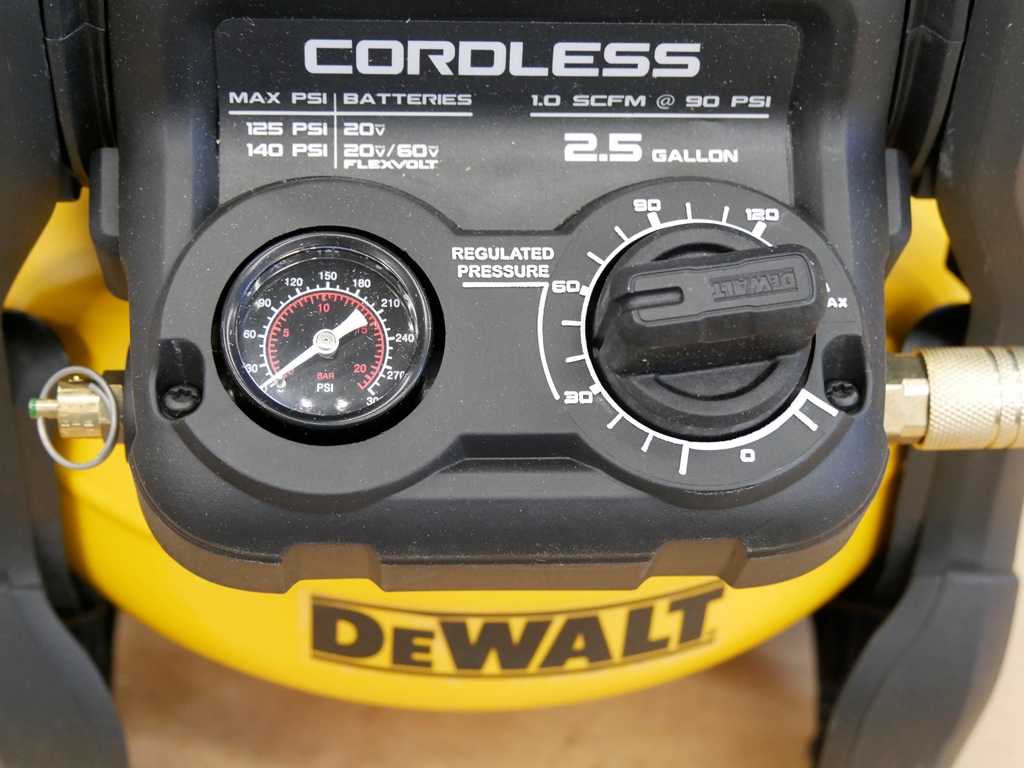
I like that the controls are simple to read and use. The pressure gauge is easy to read on the front. And the large, single-turn pressure dial makes it easy to adjust pressure.
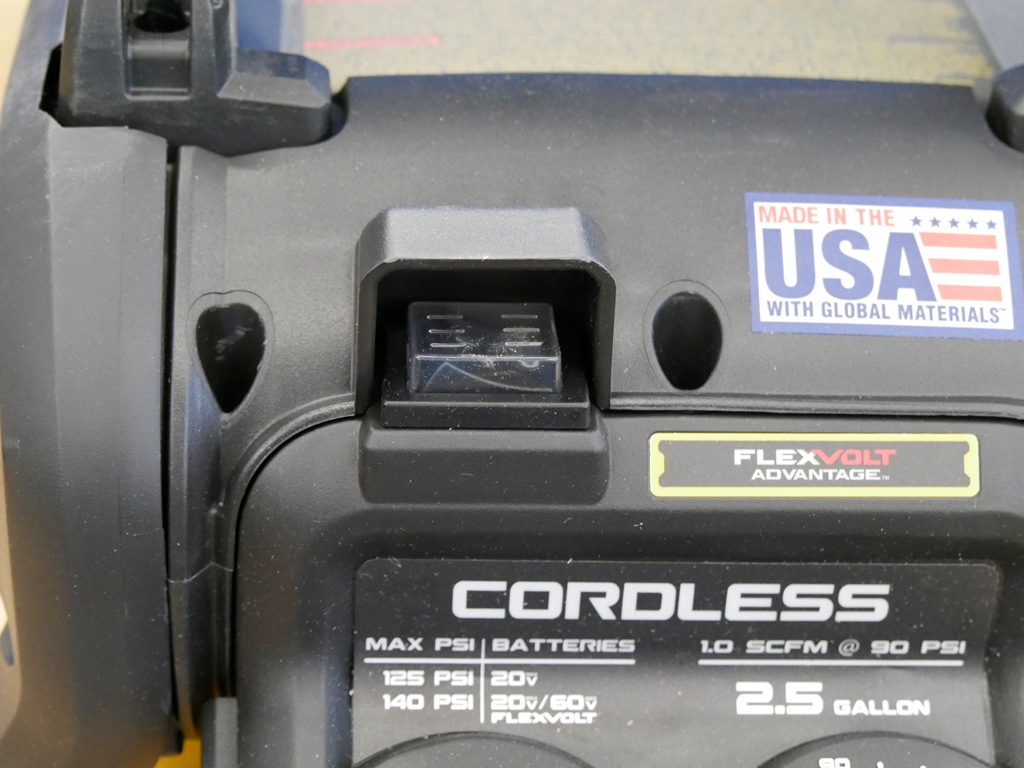
The on/off switch is sealed and protected, but still easy to access.
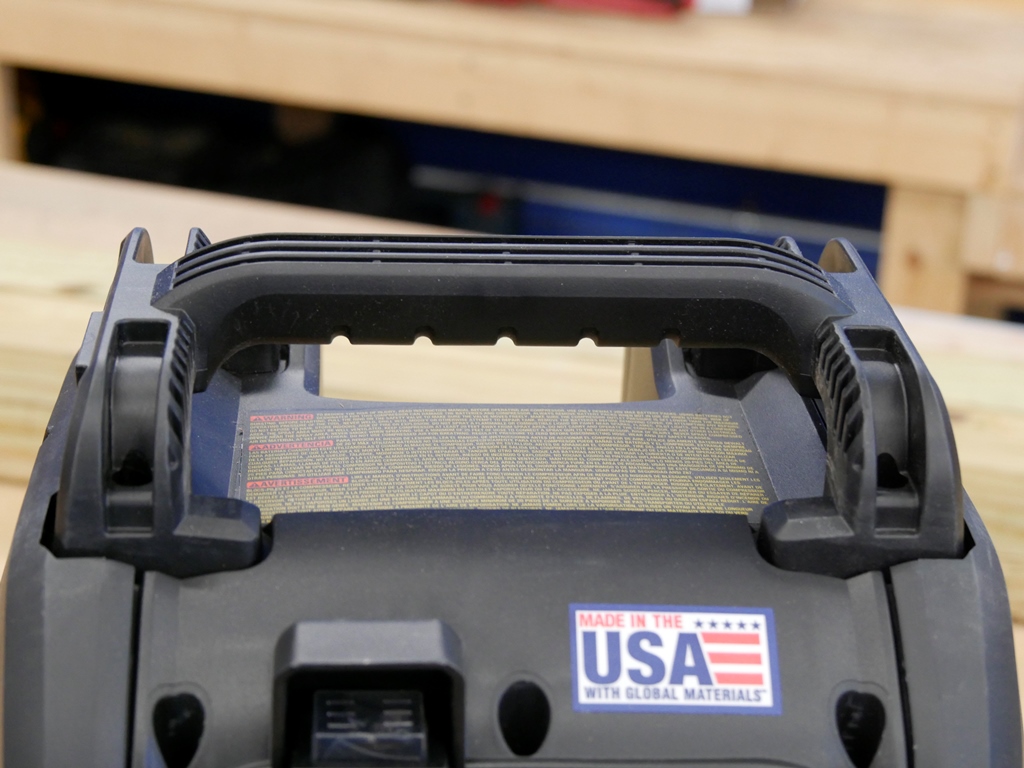
The raised, top handle is part of the molded frame. It is high and wide making it easy to grab and carry the compressor to where you need it.
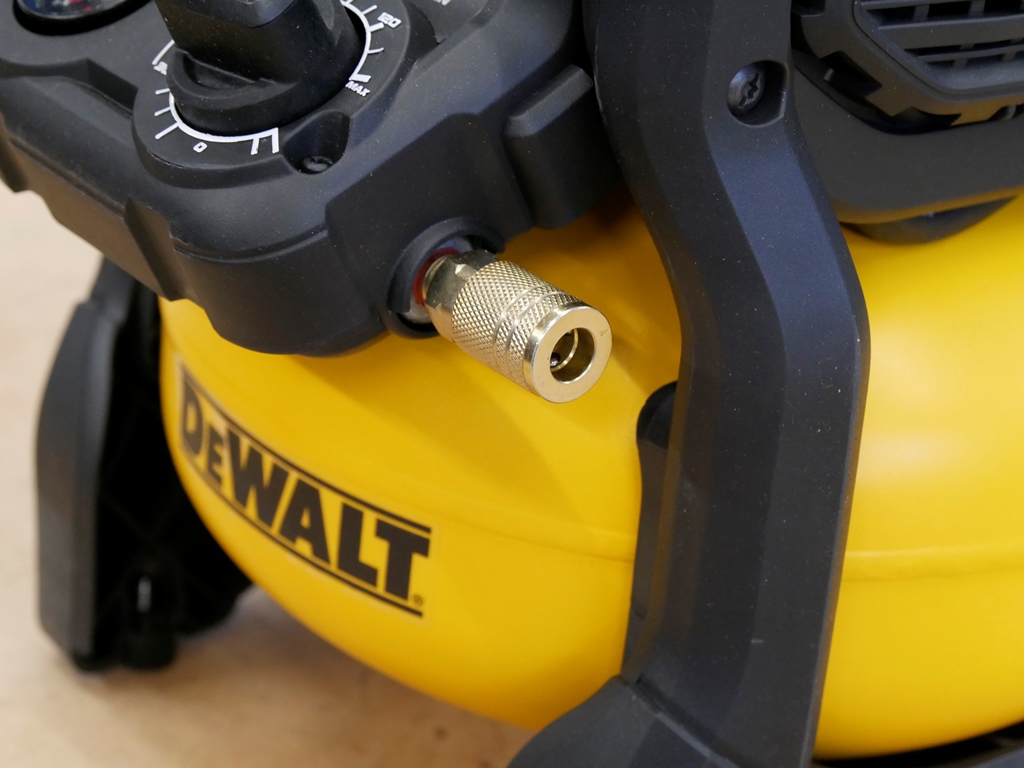
There is one hose coupler and it requires two hands to attach the hose. The sleeve does not stay retracted when there is no hose attached. So you’ll need one hand to push the sleeve back and the other to insert the hose. I much prefer the simpler, quick-connect style.
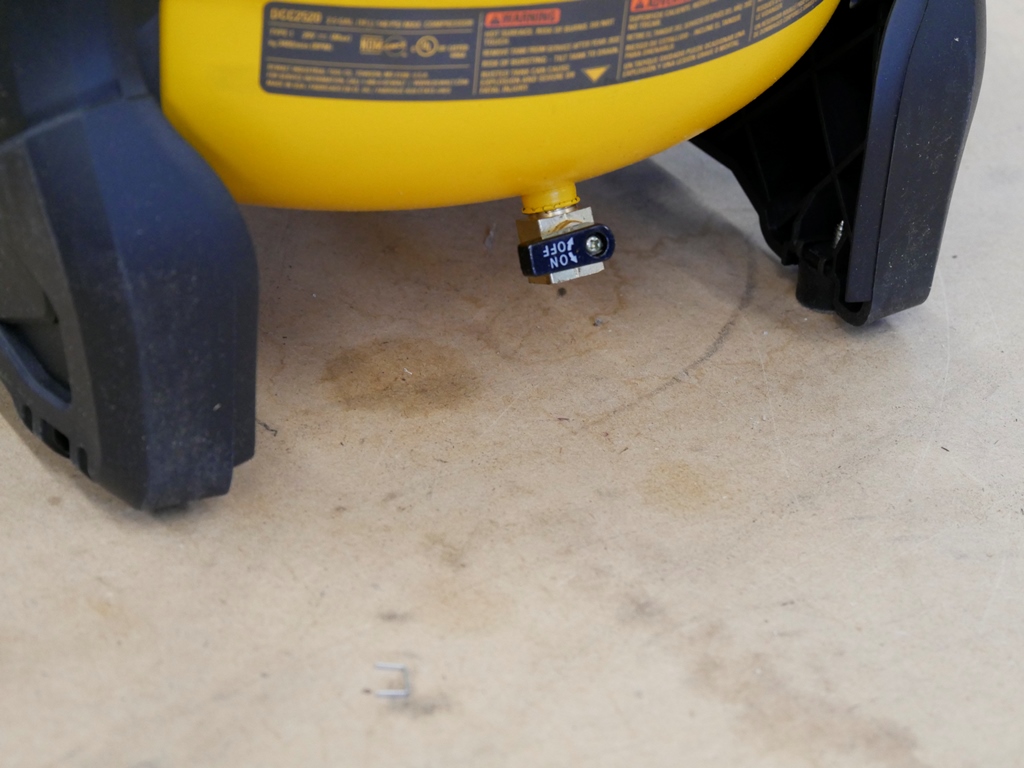
The DeWALT Cordless Compress has a standard ball type drain valve with a plastic lever.
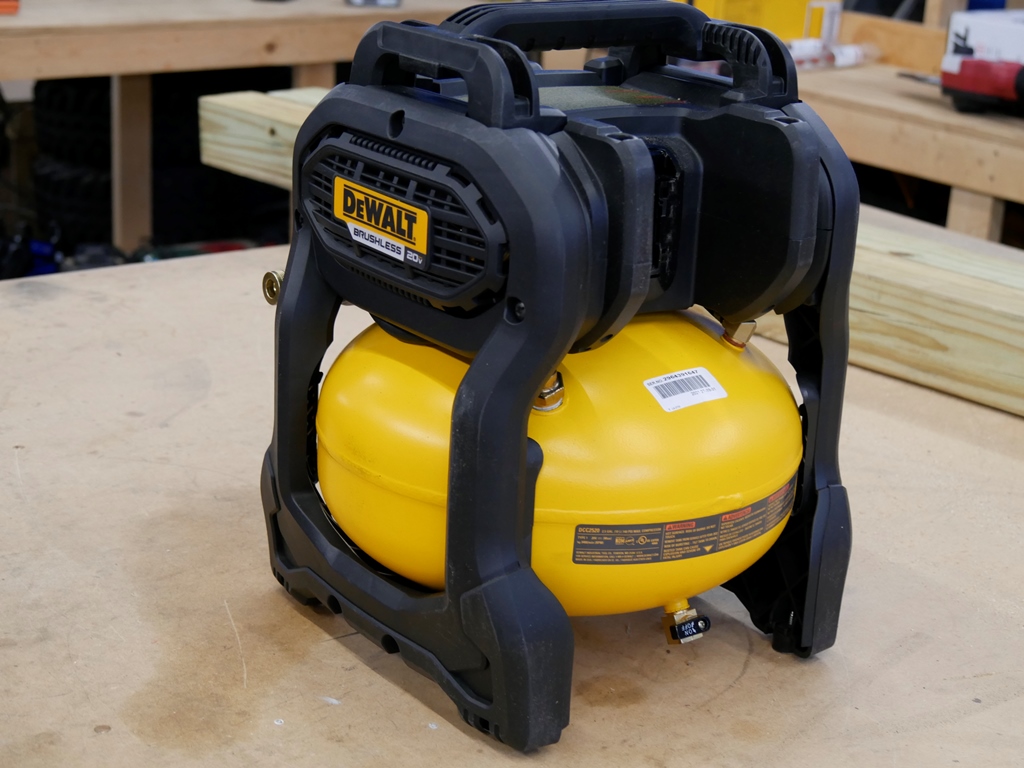
I thought the molded frame “roll cage” was well designed. If you pull this over or material falls on it the controls, on/off switch, and battery should not make contact or be damaged.
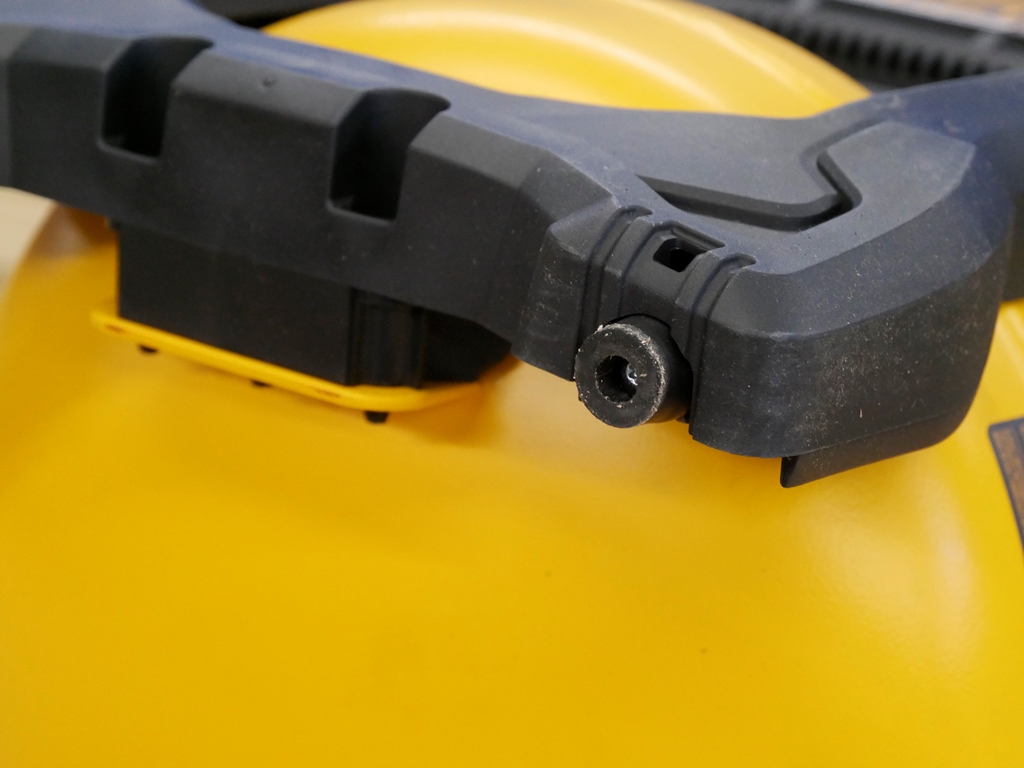
The screwed-on rubber feet prevent the compressor from walking, or moving when filling it up.
DeWALT Cordless Compressor Performance
I like this little compressor. It is about 10 lbs. lighter than my Milwaukee (2840-20) and has a slightly smaller footprint. Even with its smaller size it still has a larger tank capacity; 2.5-gallon vs. Milwaukee’s 2.0-gallon tank. The Milwaukee claims 1.2 SCFM at 90 PSI and the DeWALT Cordless Compressor (DCC2520) claims 1.0 SCFM at the same 90 PSI. Max PSI is similar with the DeWALT being slightly higher: DeWALT at 140 and the Milwaukee at 135.
The two noticeable differences for me are the noise level and nails per charge. The Milwaukee noise level rating is 68 dB(a) and the DeWALT Cordless Compressor has a rating of 80 dB(a). I did not run this compressor through a full charge cycle but according to DeWALT you can get over 850 nails per charge when powered by their 20V/60V FlexVolt battery. Milwaukee’s M18 FUEL 2 Gallon Compressor claims to sink up to 1,600 nails per charge. That is a big difference.
DeWALT Cordless Compressor Value
When discussing Performance above, I mentioned two noticeable differences between the Milwaukee M18 FUEL 2 Gallon Compressor and the DeWALT 2.5 Gallon Compressor: noise level and nails per charge. Here’s the third big difference: price. Currently, at The Home Depot, the DeWALT Cordless Compressor (DCC2520) is $199 and the Milwaukee M18 FUEL is $319 ($349 reg.). Even if you are not already invested in the DeWALT 20V battery platform you can get this DeWALT Cordless Compressor plus battery and charger for under $300, so to me that is a pretty good value if this compressor fits your needs.
DeWALT Cordless Compressor Wrap Up
The compact DeWALT Cordless Compressor (DCC2520) is built to be powerful and portable, and it is. The SCFM and max PSI are competitive when compared to other, similar cordless compressors on the market. I like that you can use a standard DeWALT 20V battery if that’s what you have, or you can also power it with the max-performing 20V/60V FlexVolt battery. Again, as I mentioned above, it is not the quietest cordless compressor I’ve used and the nails-per-charge is a little disappointing. However, the bare tool price of $199 makes it a great choice, especially if you are already invested in DeWALT’s 20V tools.


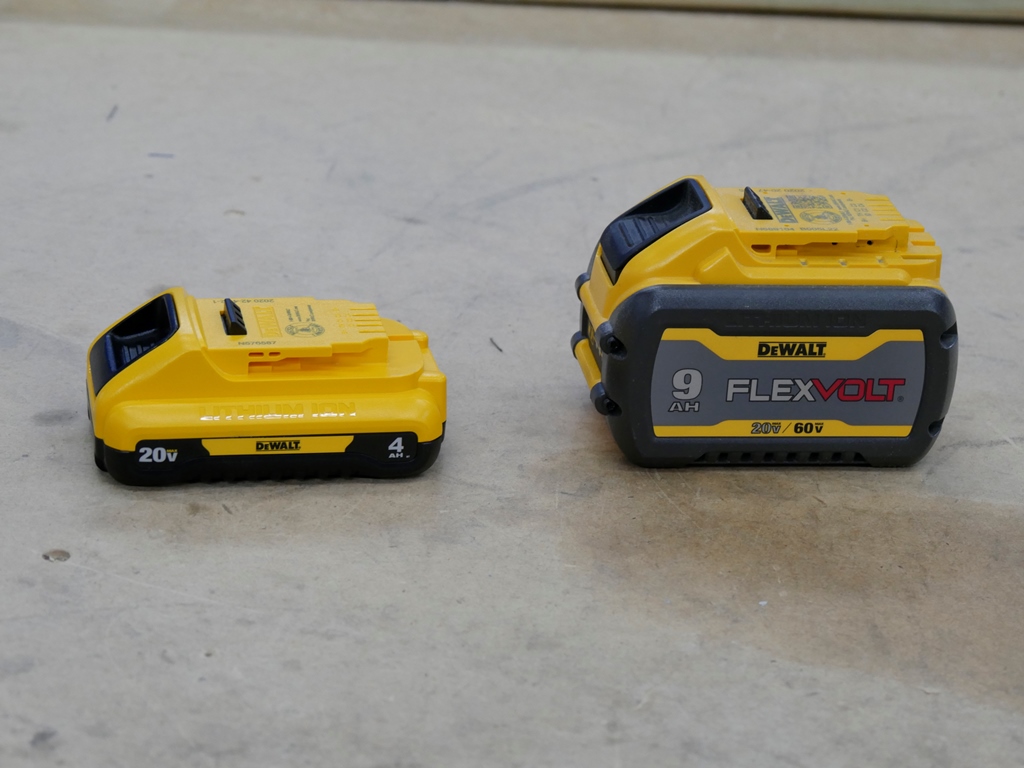
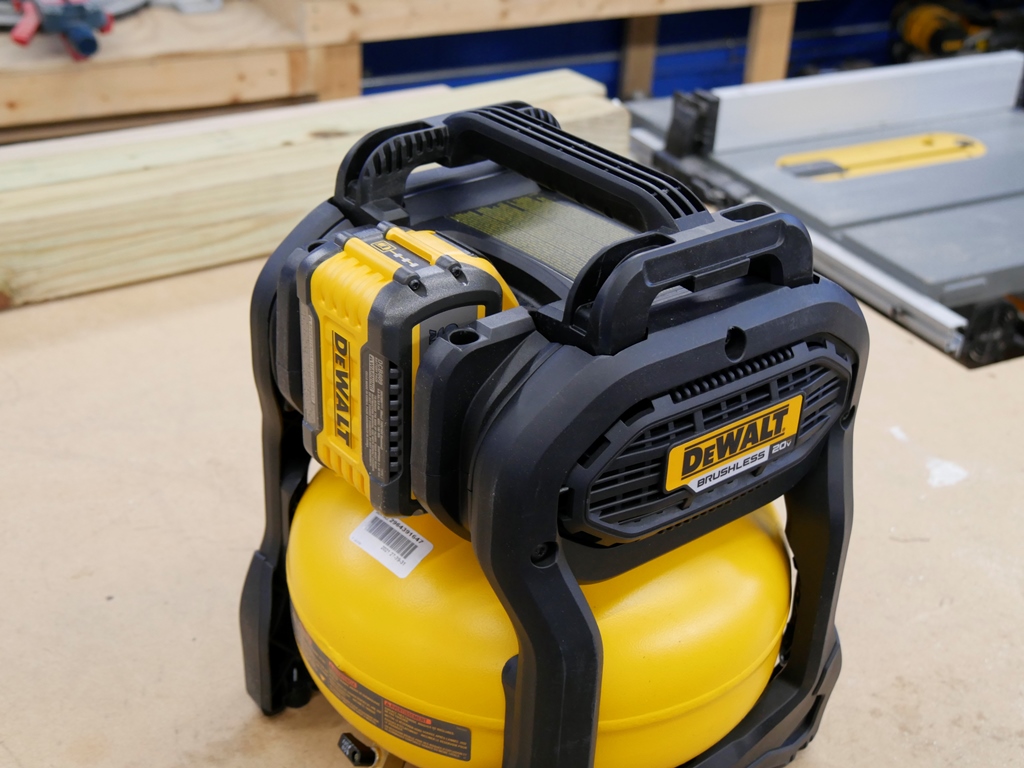
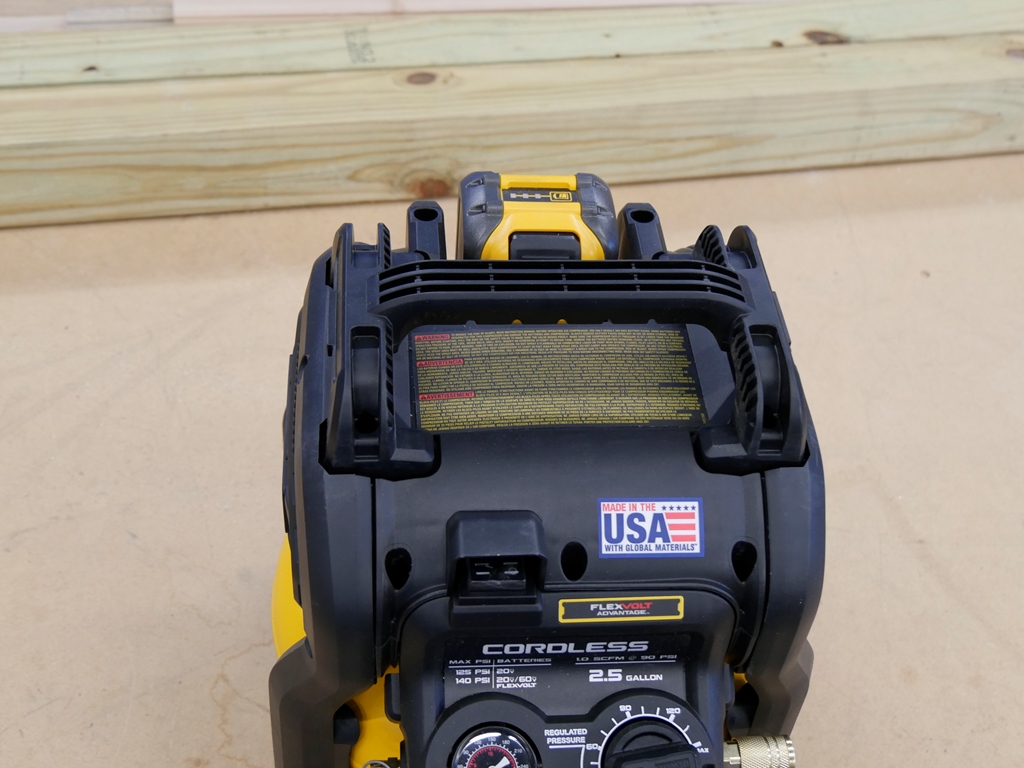
This would be great for small jobs around town where you were in a hurry & didnt want to fool around with finding a plugin.
I could use this myself. Hint, Hint…
Of course the number of nails driven by Dewalt is with the Battery provided… swap out the little standard battery, and put in a 15Ah battery, and I bet it will drive Bunches more nails!